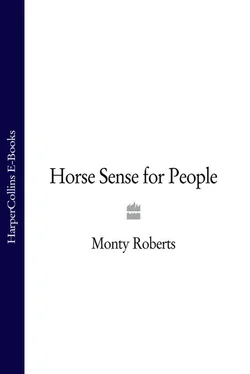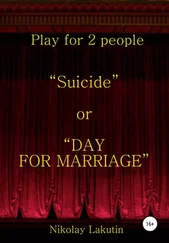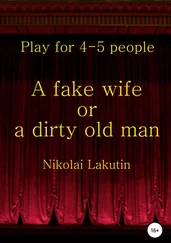If we feel comfortable around someone, we will naturally want to stay with him. By staying near him, we are likely to become more interested in him, his needs and desires. This is how we influence people. *” Scientific evidence allows us to assume that about 80 percent of communication between humans is body language. When compared with words, body language cues are imprinted more deeply in the human memory bank. Tone of voice is the next most influential part of communication and words make up the rest. This compares favorably with the horse’s communication system. Horses communicate extensively and almost entirely using body language: they do make noises, but in the natural environment, silence is paramount, because no member of the herd wants to alert predators. The horse’s highly developed senses of smell and eyesight play an important part in their communication.
The dictionary definition of communication is an act or instance of transmitting information. But communication is so much more than that. What are we trying to do when we communicate with people? We are looking for physical, emotional and spiritual families. We are looking for like-minded people who will reduce our sense of isolation in an increasingly complex world. The horse knows that, in his world, isolation means certain death. People, by contrast, can often intentionally isolate themselves from other humans. Though they can survive quite well, isolation can have negative consequences. In large cities for example, fear for one’s safety tends to create a desire to isolate oneself using bigger and bigger locks and more and more security, creating an environment of isolation within the mass of humanity. And often people in isolation lose confidence both socially and in the workplace. Stress and loneliness rise and isolation can create a sense of vulnerability.
The badly behaved foal that has been sent out of the herd knows that he cannot survive alone without the protection provided by the group. The isolated horse is at risk. The elderly or infirm horse unable to sustain the pace of the family lags behind and is soon harvested by predators. The horse knows that isolation is an unhealthy state, whereas the human seems to be unaware of the potential dangers of solitary confinement, even when it’s by choice.
Animals use a sophisticated interspecies communication system in order to survive. They assist each other, protect and communicate in a way man has yet to learn. Animals do not form subversive groups that terrorize the neighborhood as humans have learned to do. To be isolated is not to be part of a community, not to belong. Isolation is a revolt against all the things society has to offer. The more people find themselves in situations where isolation is encouraged, accepted and endured, the more anger, shame and fear they will feel. And reactions such as violent crime will surely be a result. We need to improve our communication with the less fortunate of our society and learn to speak the language they understand, as I have with the horse.
When I induce the horse to circle the round pen I am saying, “I am giving you an opportunity to choose for yourself. Flee if that is what you feel is best for you.” I want the horse to be free to choose his own course because in that state of mind learning is encouraged. Through communication, I play out the role of predator and await the gestures appropriate to renegotiation. When the horse exercises his option to come to me rather than go away, I welcome him as strongly as I can in the language of Equus. I reinforce his choice so that we can work together in harmony. It is my hope that we can go forward from that point in the certain knowledge that we mean no harm to one another.
It’s important to realize that we do each other harm in many ways—physical violence is only one form of violence. Harm can be done verbally or by an absence of communication. Communication, and the lack of it, molds our personalities just as the sculptor’s hands mold clay. If we find a way to come together with others, each of us understanding our mutual needs and desires, a bond forms. True communication protects us from misunderstandings that tend to fester into a state of fear and distrust. To acquire trust in a relationship is one of the most enriching aspects of life. But my own life is testament to the fact that communication between humans—even between father and son—is often flawed or lacking altogether.
I was walking down Main Street in our hometown of Salinas one day; I would guess I was about ten at the time. I looked ahead and saw my father walking directly toward me. As he approached, I said, “Hi Dad!” but he looked at me and kept walking. I couldn’t decide if he had seen me or not so I said, “Dad … Hello!” He was only about three feet from me and he looked directly at me. I could tell that he recognized me, that he knew me, but he gave no response at all. He passed me, turned to the left, and crossed the street; again I called out to him, “Dad. Hey!” I shouted loud enough for the whole neighborhood to hear, but he just kept walking. I returned to school, hurt and puzzled, trying to figure out in my mind what I could have done to upset him and cause him to so deliberately ignore me.
I harbored this hurt for many years. My father’s recognition of me was important, particularly at that age. This incident was yet another deep scar on our relationship. In a sense, it was a small incident, but it reflected a huge coldness, a void between us, which I simply could never come to grips with. I became always eager to please. I did everything he wanted me to. I intensely disliked being involved in his harsh, often brutal if traditional training methods with horses, but in order to please him I gave him any assistance he requested.
We finally reached a silent understanding. During a confrontation years later, I asked him if he remembered that day on the street when he ignored me. He looked at me and said, “I didn’t have anything to say to you.” I let it go, because I guess that was an answer; by then I knew it would achieve nothing to point out that I had not been asking for a conversation that day in Salinas, merely an acknowledgment of my presence.
Greetings take little effort. Children need to know they are important to someone. A parent refusing to acknowledge the presence of his child is like an animal refusing to allow a newborn to drink from its udder. It is a refusal of life itself. I have been strong in my need to communicate with my own children because of such incidents from my childhood. Parents must take responsibility for their children’s emotional welfare; the impressions of humanity they grow up with will mold their lives and affect the lives of the people around them.
For a few critical years in my development I lived with the knowledge that my father had ignored me. The child will almost always ask, Why? In this case the child’s logical conclusion was that he wasn’t worthy of a greeting. A child so treated will often conclude that he or she has been rejected by society, in this first case the microsociety of his immediate family. If a message of rejection is given to a child, we should not be surprised if the child rejects the family and, perhaps, in the end, the larger society. We have already painted the picture; all the child has to do is step into it.
I had not, to the best of my knowledge, done anything to cause my father to ignore me. In my own opinion, I was a hardworking youngster whom any father might have been proud to have raised. The incident, however, caused doubt in me, and it left an indelible mark on my character that has caused me to view relationships with people with a degree of skepticism. But if the adults in my life didn’t seem to make much sense, the horses—even, and especially, wild horses—were starting to make perfect sense.
Читать дальше












